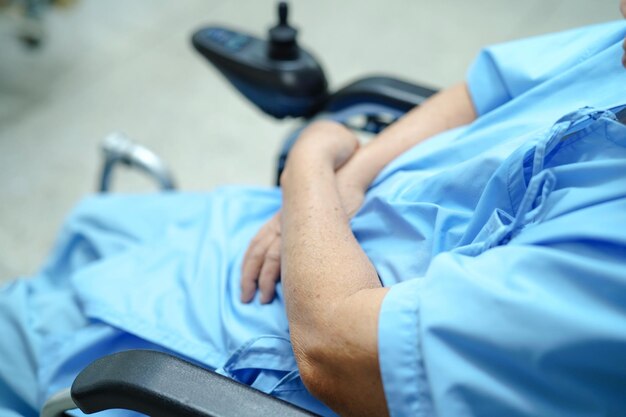Your Guide to How Long Does Incontinence Last After Robotic Prostatectomy
What You Get:
Free Guide
Free, helpful information about Incontinence FAQ and related How Long Does Incontinence Last After Robotic Prostatectomy topics.
Helpful Information
Get clear and easy-to-understand details about How Long Does Incontinence Last After Robotic Prostatectomy topics and resources.
Personalized Offers
Answer a few optional questions to receive offers or information related to Incontinence FAQ. The survey is optional and not required to access your free guide.
What to Expect with Incontinence After Robotic Prostatectomy
Navigating the recovery process after a robotic prostatectomy can be daunting, particularly when it comes to managing postoperative symptoms like urinary incontinence. For many men, the anxiety surrounding incontinence may outweigh the actual experience. So, how long does incontinence typically last after this procedure, and what steps can be taken for a smoother recovery?
Understanding Incontinence Post-Surgery
Postoperative urinary incontinence occurs in a significant number of men after a robotic prostatectomy, primarily because the procedure removes the prostate gland, which plays a role in urinary control. The severity and duration of incontinence can vary widely from person to person.
- Initial Phase: Most men experience a period of significant incontinence immediately after surgery. This typically lasts for several weeks to a few months, with gradual improvement.
- Recovery Timeline: For the majority, substantial improvement occurs within three to six months after surgery. Achieving full control can take up to a year or more in some cases.
- Long-term Outlook: It's estimated that 20-30% of men may still experience mild stress incontinence after two years, though only a smaller fraction will require ongoing management or intervention.
Strategies for Managing Incontinence
Here are some effective strategies to manage and reduce incontinence after a robotic prostatectomy:
Pelvic Floor Exercises: Regular practice of Kegel exercises can strengthen the pelvic floor muscles, helping to regain urinary control more quickly. Begin these exercises pre-surgery if possible.
Bladder Training: Establish a schedule for urination to gradually increase the time between bathroom visits, training your bladder to hold urine for longer periods.
Lifestyle Adjustments: Reducing caffeine and alcohol intake, losing weight, and avoiding bladder irritants can help manage symptoms.
Medical Consultation: Seek guidance from your healthcare provider, who may suggest medications or further therapeutic interventions if necessary.
Financial Considerations in Recovery
The financial impact of surgery and prolonged recovery phases, including incontinence management, should not be ignored. Here are some avenues to explore for financial relief and support:
Government Aid Programs: Investigate Medicare or Medicaid for potential coverage of incontinence supplies or rehabilitation therapies.
Health Insurance Plans: Review existing health insurance plans for benefits relating to post-surgical recoveries, such as physical therapy sessions.
Employer Benefits: Check with HR for short-term disability benefits that may alleviate the financial pressure during extended recovery periods.
Exploring Broader Support Options
Besides directly addressing incontinence, consider other support systems for a comprehensive recovery experience:
Educational Workshops: Look for workshops that offer insight into post-operative care and techniques to manage incontinence effectively.
Support Groups: Joining support groups offers emotional backing and shared experiences that can be valuable throughout recovery.
Taking proactive steps to manage both the physical and financial aspects of recovery can empower you during this challenging time. By understanding the typical timeline and exploring available resources, you can confidently navigate this stage of post-operative recovery.
Financial and Support Resources
📅 Medicare/Medicaid: Explore coverage options for supplies and therapies.
💼 Employer Benefits: Investigate available short-term disability support.
🏥 Health Insurance: Review policies for rehab and therapy inclusions.
🤝 Support Groups: Connect with others who've navigated similar experiences.
🎓 Workshops: Educational opportunities for learning effective management strategies.
What You Get:
Free Incontinence FAQ Guide
Free, helpful information about How Long Does Incontinence Last After Robotic Prostatectomy and related resources.

Helpful Information
Get clear, easy-to-understand details about How Long Does Incontinence Last After Robotic Prostatectomy topics.

Optional Personalized Offers
Answer a few optional questions to see offers or information related to Incontinence FAQ. Participation is not required to get your free guide.


Discover More
- a Patient You Are Caring For Uses Incontinence Briefs
- Are Incontinence Products Tax Deductible
- Are Incontinence Supplies Covered By Medicare
- Are Incontinence Supplies Tax Deductible
- Can a Bladder Infection Cause Urinary Incontinence
- Can a Kidney Stone Cause Incontinence
- Can a Urinary Tract Infection Cause Incontinence
- Can a Uti Cause Incontinence
- Can Constipation Cause Incontinence
- Can Constipation Cause Urinary Incontinence
